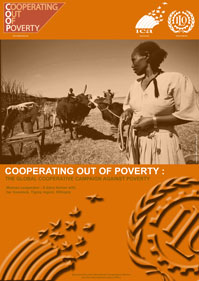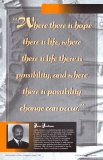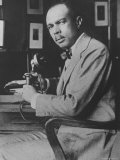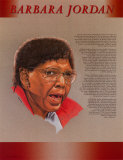|
|
|
|
|
|
|
PEACE & JUSTICE CALENDARS
|
|
|
|
|
|
|
|
|
|
|
|
|
|
|
|
|
|
|
|
|
|
|
|
|
|
|
|
|
|
 |
|
|
|
|
|
|
Fatima Ahmed Ibrahim
b. 1933; Khartoum, Sudan
Fatima Ibrahim is a writer, women rights activist and Socialist leader.
|
|
|
|
Jovita Idar
b. 9-7-1885; Laredo, Texas
d. 6-15-1946; San Antonio, TX
Jovita Idar, teacher, journalist, political and civil rights activist worked to advance the civil rights of Mexican-Americans.
Jovita Idar quote ~
• “Educate a woman and you educate a family.”
|
|
|
|
Jesse Jackson
b. 10-8-1941; Greenville, SC
“Where there is hope there is life, where there is life there is possibility, and where there is possibility change can occur.”- Jesse Jackson
Poster Text: Jesse Jackson is a political leader and a minister. He was born in 1941 in Greenville, South Carolina. In 1965, he went to work for Martin Luther King, Jr., and his Southern Christian leadership conference. Later, he formed his own group, People United to Serve Humanity, or PUSH. PUSH works, among other things, to help African Americans gain greater economic power. In 1984 and 1988, he was a candidate to be the Democratic Party's nominee for president.
• more Jesse Jackson posters
|
|
|
|
Wes Jackson
b. 1936; Kansas
Wes Jackson, the founder of The Land Institute, and proposer of “Natural Systems Agriculture” - a sustainable, high yield, low labor, agricultural model based on the culturation of crop polycultures, using nature as a model.
Wes Jackson quotes ~
• “The agriculture we seek will act like an ecosystem, feature material recycling and run on the contemporary sunlight of our star.”
• “When people, land, and community are as one, all three members prosper; when they relate not as members but as competing interests, all three are exploited. By consulting Nature as the source and measure of that membership, The Land Institute seeks to develop an agriculture that will save soil from being lost or poisoned while promoting a community life at once prosperous and enduring.”
|
|
|
|
Aletta Jacobs
b. 2-9-1854; Sappemeer, Netherlands
d. 8-10-1929; Baarn
Aletta Jacobs was the first woman to receive a medical degree in Holland. Her experiences in medical school and treating women patients lead her to become a national and international leader in the campaigns for birth control, the women's world peace movement, and women's suffrage. She worked with Jane Addams and Carrie Chapman Catt.
|
|
|
|
Jane Jacobs
b. 5-4-1916; Scranton, PA
d. 4-25-2006; Toronto, Canada
Jane Jacobs' writing focused on communities, urban planning and decay. She is also noted for activism in organizing grassroots blockage of urban-renewal projects that destroyed neighborhoods.
Jane Jacobs quotes ~
• “The point of cities is multiplicity of choice.”
• “You can't rely on bringing people downtown; you have to put them there.”
• “There is a quality even meaner than outright ugliness or disorder, and this meaner quality is the dishonest mask of pretended order, achieved by ignoring or suppressing the real order that is struggling to exist and to be served.”
• architecture posters
|
|
|
|
Franz Jagerstatter
b. 5-20-1907; Austria
d. 8-9-1943; Brandenburg an der Havel, Germany - executed
Jägerstätter was the only person in his village to vote against the Anschluss (union of Austria into Germany) in the plebiscite of April 10, 1938 and was openly anti-Nazi. He was guillotined for his refusal to fight for the Wehrmacht, or German armed forces in WWII. He was beatified by the Catholic Church in 2007.
|
|
|
|
|
|
James Weldon Johnson
b. 6-17-1871; Jacksonville, FL
d. 6-26-1938; Maine (car accident)
James Weldon Johnson was, as an author, educator, lawyer, politician, diplomat, critic, journalist, poet, anthologist, songwriter, early civil rights organizer, and activist.
James Weldon Johnson quotes ~
• “Young man, young man, your arm's too short to box with God.”
• “The final measure of the greatness of all peoples is the amount and standard of the literature and all they have produced. The world does not know that a people is great until that people produces great literature and art.”
• “Labor is the fabled magician's wand, the philosopher's stone, and the cap of good fortune.”
|
|
|
|
“Mother” Jones
née Mary Harris
b. 8-1-1837; Cork, Ireland
d. 11-30-1930; Silver Spring, MD
Mary Harris Jones, a labor and community leader, organized the Children's Crusade of 1903 and the families of mine workers. She also was the founder of the Industrial Workers of the World (IWW), or Wobblies. Being radicalized by the death of her husband and four children from yellow fever in Tennessee, and then the loss of her home and business in the 1871 Chicago Fire, she was called “the most dangerous woman in America” in 1902 and the “grandmother of all agitators”.
Carl Sandburg reports that the song “She'll Be Comin' Round the Mountain” refers to Mother Jones.
Mother Jones quote ~
• “Pray for the dead and fight like hell for the living.”
• Mother Jones Magazine
• Mother Jones: The Most Dangerous Woman in America
|
|
|
|
Kurt Jooss
b. 1-12-1901; Wasseralfingen, Germany
d. 5-22-1979; West Germany
Among dancer and choreographer Kurt Jooss' most notable works is The Green Table (1932), a commentary on the futility of war and the horrors it causes, perhaps inspired by medieval pictures of people dancing with death.
Jooss is also noted as founding of Tanztheater or Dance Theatre, mixed classical ballet with theater to give “expression” of the dramatic idea in unified style and form (expressionist dance). He established several dance companies such as the Folkwang Tanztheater and Folkwang Schule. He was a student of Rudolf von Laban.
|
|
|
|
Barbara Jordan
b. 2-21-1936; Houston, TX
d. 1-17-1996
Barbara Jordan liked to tell people that when she was born she already had three strikes against her. She was born poor, black and female at a time when to ba any one of those things was to be almost totally without power in America. Yet Barbara Jordan eventually took her place among the most powerful people in the nation. Barbara Jordan strongly believed that it is not enough just to have power – you must use it to benefit others.
Barbara Jordan was born in a poor section of Houston on February 21, 1936. At that time, segregation – of whites and blacks – was still an accepted way of life in the South. Blacks could not eat in the same restaurants as whites. They had to drink from separate “Coloreds Only” water fountains. And they were expected to sit in the back of the bus, and give up their seat if a white person wanted it. But Barbara's parents didn't stress how difficult life could be for blacks in America. Instead, they constantly told their children to become educated. As Barbara's father told her: “No man can take away your brain.” In high school, Barbara joined the debate team and discovered the special gift that would serve her throughout her life: a rich, powerful speaking voice.
Barbara decided she wanted to become a lawyer. She went to Texas Southern University near her home, and then on to Boston University Law School. After graduation, she moved back to Texas, setup a law office and ran for the Texas state legislature. Twice in a row she lost to a wealthier, better-known white candidate. But Ms. Jordan didn't give up, and in 1966 she was elected to the Texas state senate – making her the first black woman ever elected to a state office in Texas. In 1972, she was elected to the U.S. congress as a member of the House of Representatives. And in 1976, she received another great honor when she became the first black woman ever chosen to give the “keynote” speech of the Democratic National Convention.
In 1978, Rep. Jordan retired from politics and accepted an offer to become a teacher at the University of Texas. She took the job because she wanted to go back to Texas and help the people who had helped her first get elected 12 years earlier. All of her life, Barbara Jordan worked to make life better for other people – especially poor black people. When she died in 1996, she was eulogized as a hero. But she only wanted to be remembered as “someone who made a difference.”
• more Famous African American Women
Barbara Jordan quotes ~
• “Art has the potential to unify. It can speak in many languages without a translator. Art does not discriminate - it ignores external irrelevancies and opts for quality, talent and competence.” 1993
• “Do not call for black power or green power. Call for brain power.”
• “I felt somehow for many years that George Washington and Alexander Hamilton just left me out by mistake. But through the process of amendment, interpretation, and court decision, I have finally been included in ‘We, the people.’ ”
• “My faith in the Constitution is whole, it is complete, it is total, and I am not going to sit here and be an idle spectator to the diminution, the subversion, the destruction of the Constitution.”
|
|
|
previous page | top | next
peace & justice activists list | a | b | c | d | e | f | g | h | I-J |
k | l | m | n | o | p | r | s | t | u-v | w | x-y-z
|
|
I have searched the web for visual, text, and manipulative curriculum support materials - teaching posters, art prints, maps, charts, calendars, books and educational toys featuring famous people, places and events - to help teachers optimize their valuable time and budget.
Browsing the subject areas at NetPosterWorks.com is a learning experience where educators can plan context rich environments while comparing prices, special discounts, framing options and shipping from educational resources.
Thank you for starting your search for inspirational, motivational, and educational posters and learning materials at NetPosterWorks.com. If you need help please contact us.
|
|
|
























